The PMS Clan blazed a trail for women in competitive gaming
Twin sisters Amy Brady (Athena/Valkyrie) and Amber Dalton (Athena Twin) founded PMS Clan in 2002—now one of the oldest competitive gaming organizations in the world.
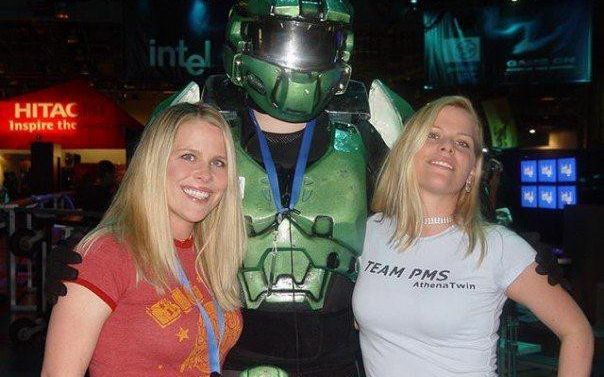
In the early days of PC gaming, the Crackwhores and Girlz of Destruction—tight-knit all-girl Quake clans—broke ground for women. In the late '90s/early 2000s, gaming culture might as well have been a different universe. But it was the Psychotic Man Slayers, aka PMS Clan, who helped to usher women into competitive gaming en masse, and it all started with two sisters on Xbox Live: twins Amy Brady (Athena/Valkyrie) and Amber Dalton (Athena Twin).
"When we first founded PMS, Amy and I met two other girls online and it was cool as hell, we couldn't believe it, like, 'Oh my god, let's go play some games,' and we did and we were killing all the guys," says Dalton. "That's how we started, off of that pure just awesomeness of finding women." PMS eventually changed their name to Pandora's Mighty Soldiers when they started to attract sponsors. Brady and Dalton had also learned of a disbanded all-girls Quake clan with a similar name: Psycho Men Slayers, some of whom came over to join the new PMS Clan. Today, it's one of the oldest competitive gaming organizations in the world, with members on every gaming platform.
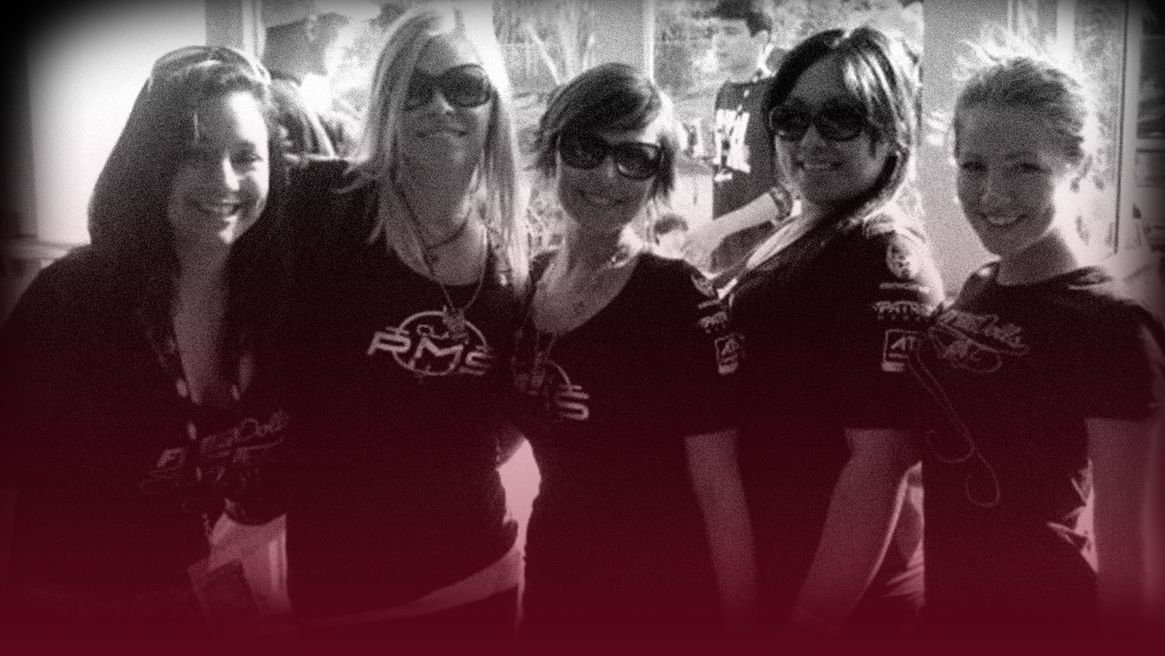
"When we created that [PMS] tag, it was because everyone used [three-letter] acronyms. As women in that time, you were like 'Oh, they're gonna know they're getting killed by a woman,' right?" says Brady. "We knew we were instantly identified as female. We loved that."
There's a lot of women gamers. They've been there the whole time. We've seen them from the very beginning
Amy Brady
For their service to pro gaming, Brady and Dalton were recently presented with an Esports Lifetime Achievement Award. While they retired almost a decade ago, in their prime they were unstoppable. Brady was on the first all-female team to win a pro tournament at CPL 2006 playing Rainbow Six: Vegas 2 and an original member of Ubisoft's Frag Dolls (arguably one of the first influencer groups in gaming history).
In 2007, Dalton was one of the world's top 10 Fight Night players, as well as a ranked Halo and Gears of War pro. They even helped to introduce the Xbox 360 on MTV in 2005, replete with Brady playfully calling her opponents "bitch", as was the way of the 2000s.
While some things may be vastly different in the esports business today, harassment, discrimination, and unequal prize pools are sadly the same and it's still not common to see equal numbers of women in the major leagues. It was only in 2019 that Bumble (yes, the dating app) and Gen.G formed the first pro all-women Fortnite team. Starcraft 2 player Sasha "Scarlett" Hostyn, the highest-paid female pro gamer in the world, has over $400,000 in winnings from 230 tournaments—less than half of what top male player, Cho Sung Choo ("Maru") made from 133 tournaments.
How many women are there undiscovered, that mute their mic and don't stream? That's where a lot of the top players are.
Amber Dalton
Both Brady and Dalton reminisce about the early 2000s pro-am environment where amateurs could interact relatively easily with top-tier players. But this once-open environment has shrunk as competitive gaming has grown into a behemoth worth over a billion dollars. Polarizing opinions about "feminine" branding aside, on the competitive level, the visibility that PMS Clan fought for in the early 2000s has waned.
The biggest gaming news, reviews and hardware deals
Keep up to date with the most important stories and the best deals, as picked by the PC Gamer team.
"There's a lot of women gamers. They've been there the whole time. We've seen them from the very beginning," says Brady, who now works as a consultant. "Competitively, I almost feel we've regressed a little bit, but that is because it's a lot harder to obtain certain levels in esports and competitive gaming than it was in our day, where you could go and qualify for a championship bracket right on site and prequalify that way."
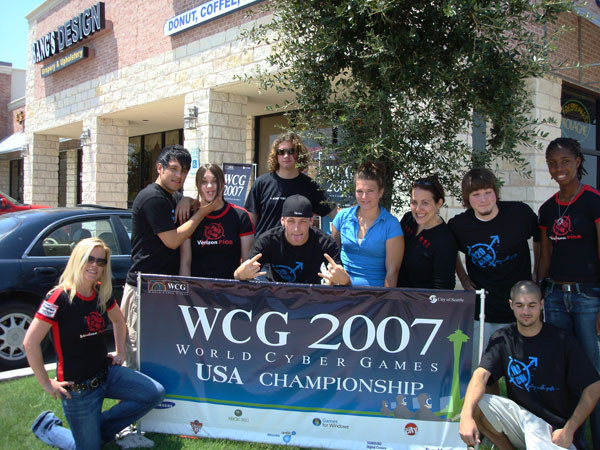
According to Brady, since the pro gaming scene was so much smaller in the early years, the women in PMS Clan were able to befriend the best players at the time. "We didn't scrim scrub matches," she says. "We only scrimmed pros and that's what made it easier, that access." (A scrim, short for scrimmage, is an unranked exhibition or practice game.)
Being able to play with the best upped the twins' game and propelled them into the pro circuit. "Definitely one of the positives was that pros were willing to take their time to train us," explains Dalton, now a senior director of sales and sponsorships at Twitch. "That's not such an open opportunity anymore. In fact, [top pros] can't even let other people see who they are. They have to play [as] ghosts so that no one knows who they are when they're doing their thing so no one knows their strategies."
It’s frustrating enough that women don't always get to compete at top-level mixed tournaments, but the decline of pro-am interaction over the years also means that new female talent isn't as visible to recruiters and tournament organizers. This is even more important when you consider that, like any sport, the best time to recruit pro players is when they're young. According to Dalton, the biggest difference is that most women start earnestly getting into competitive gaming much later—around four years later—than men.
"There is no pro-am access so [esports teams] can identify women very easily," says Dalton. "In fact, one of the male esports team managers told me that the biggest problem they had in getting women was trying to find them… trying to find videos, or Twitch streams. How many women are there undiscovered, that mute their mic and don't stream? That's where a lot of the top players are."
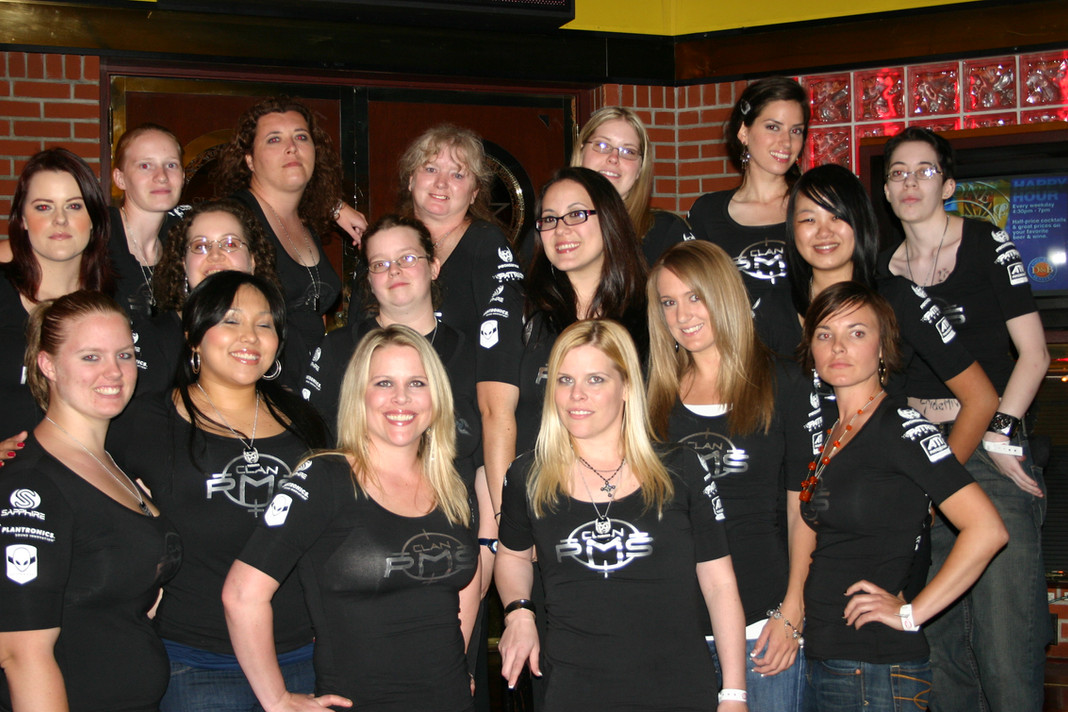
Still, not all of the changes since PMS Clan's heyday have been bad—today esports is a legitimate career (albeit with a pretty short pro lifespan), which wasn't a viable option when Brady and Dalton started out.
"Just being able to make a living playing videogames or doing a clan was unheard of at that time," Dalton says. "This was a day when a tournament you could win maybe $500 to $5,000—they did have some big Quake events with a bigger paycheck than that but that was uncommon."
Brady describes packing in eight team members to a hotel room and "working every sponsor dollar," a far cry from the state of top-tier esports tournaments today. "We had to break ground on all that stuff, and it was not a pretty place to be. It really wasn't… we didn't really make money off winnings, even when we won."
Many of the girls on their pro teams were young, including Bonnie "Xena" Burton, who was, at the age of 12, MLG's first pro female Halo player. "We'd have to talk to the parents and all that, to try to grow a whole whole organization," Brady recalls. "I emailed Big Brothers Big Sisters, like, 'how can we partner?'"
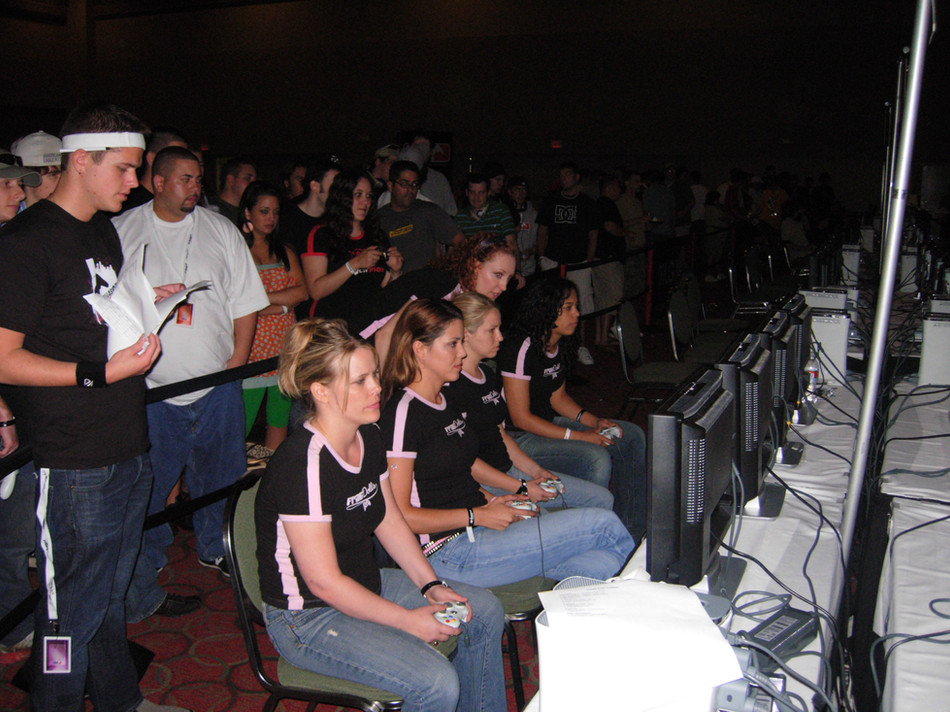
Today, PMS Clan—the twins' life work—is in the care of RaShaun "RaylaDivine" PMS and co-leader Krystal "Ovaryacting" PMS, along with a phalanx of platform/game-specific leaders who specialize in everything from Destiny and Halo to Call of Duty and Battlefield. And while the clan has done much to nurture a community of over 60,000 women and LGBTQ members, it's also moving back to its pro roots. In 2019, Ovaryacting posted on the PMS forum about bringing the clan's focus back to competitive gaming.
It's been challenging for PMS to adapt to social and cultural changes around the idea of a "female gamer" and a more progressive understanding of gender. "How do you attract a generation that doesn't want to identify [as a female gamer]?" says Brady of general competitive gaming culture. "As a minority it is so important to have a role model."
Dalton agrees. "We need to do something to address the other genders or those that don't want to claim a gender. We are here, and we formed to support women"—"and those who identify as women!" Brady pipes up—"because we still haven't achieved [equality]."
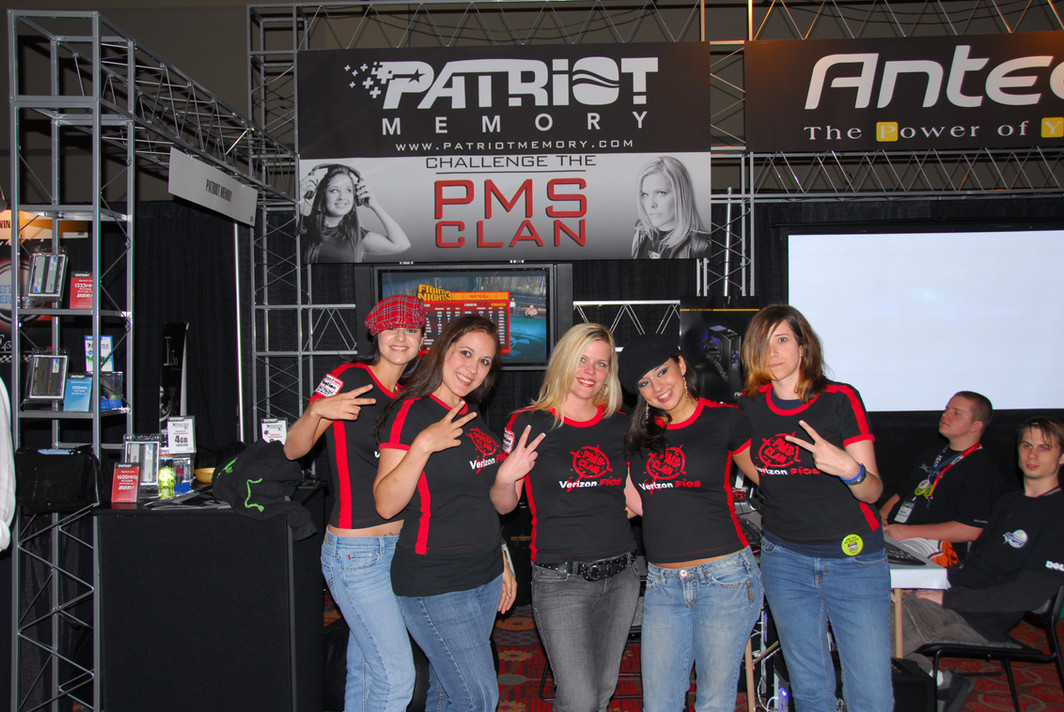
I ask them if they'd consider getting into pro gaming in today's gaming landscape. "I'm going to tell you, it's exhausting," Dalton says. "When I went to Twitch [in 2011], I was already burnt on both ends, just from being in the limelight that was available at that point, which was nothing compared to what it is today... I think it's important for the players, the industry, to realize the importance of mental health… we still need to have the right guidance and pieces in there so people can have a work-life balance."
After a lifetime of being Extremely Online in the name of games, it makes sense that Brady and Dalton's big favorite now is the very offline social deception game Werewolf—they are in the Bay Area test group for Ultimate Werewolf where they go on full-blown weekend camping trips, and they even have a Werewolf game scheduled for after our chat.
Still, it's hard to fully escape from the digital—Dalton dips into Pokémon Go so she can play while hiking, and Brady plays Overwatch (she's a Lucio main), some FF14 and World of Warcraft ("Amber, this covenant shit is ridiculous," she tells her sister).
Even though Brady and Dalton have positive memories of their time on the pro circuit, it's impossible now to discuss women and minorities in gaming without talking about systemic issues of harassment and exploitation. Both sisters agree that the gaming industry can and should do better.
"I'm not saying [harassment] doesn't happen, because it definitely does," Dalton says. "It's unfortunate… and perhaps what's great about this movement is everyone is becoming more aware, even myself… and I'm hopeful that the industry leaders can make the correct choices to lead themselves down a different path and not stay with necessarily the old ways, because those old ways are not going to be tolerated anymore."
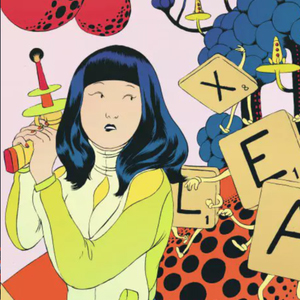
Alexis Ong is a freelance culture journalist based in Singapore, mostly focused on games, science fiction, weird tech, and internet culture. For PC Gamer Alexis has flexed her skills in internet archeology by profiling the original streamer and taking us back to 1997's groundbreaking all-women Quake tournament. When she can get away with it she spends her days writing about FMV games and point-and-click adventures, somehow ranking every single Sierra adventure and living to tell the tale.
In past lives Alexis has been a music journalist, a West Hollywood gym owner, and a professional TV watcher. You can find her work on other sites including The Verge, The Washington Post, Eurogamer and Tor.

